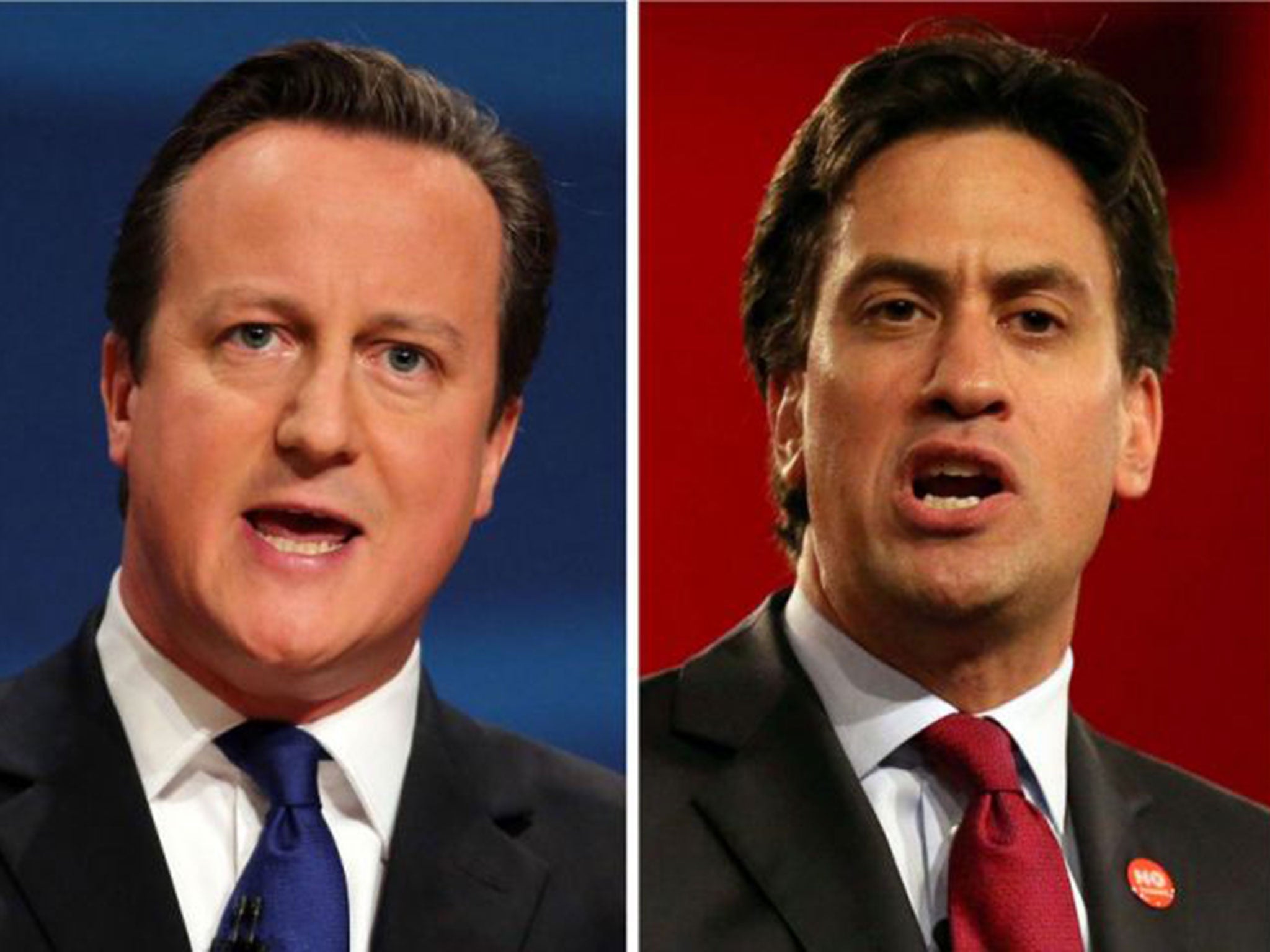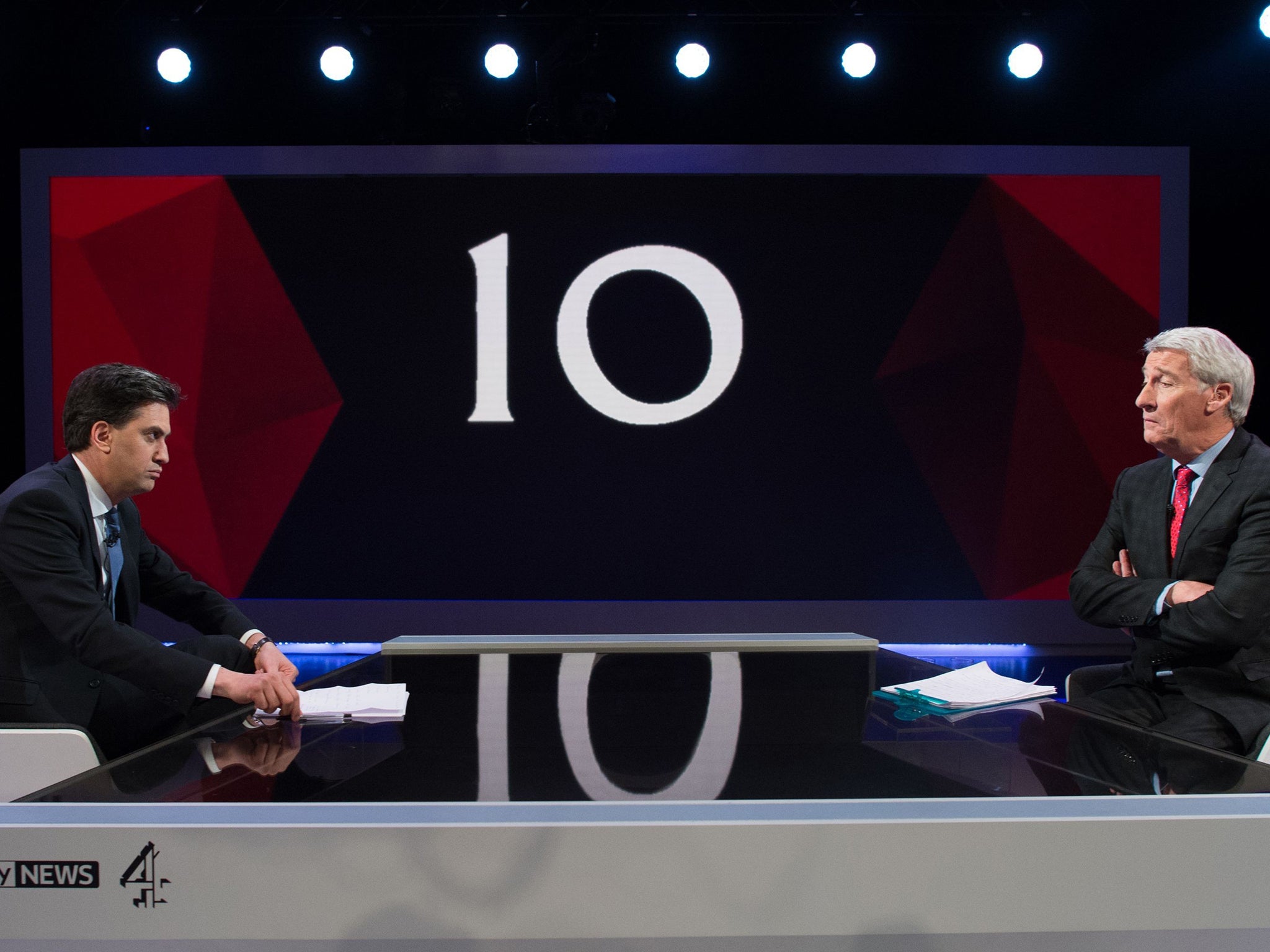The Battle for Number 10: Great TV but not an interview for the job of prime minister
The real winners were Sky News and Channel 4, whose audiences soared

Your support helps us to tell the story
From reproductive rights to climate change to Big Tech, The Independent is on the ground when the story is developing. Whether it's investigating the financials of Elon Musk's pro-Trump PAC or producing our latest documentary, 'The A Word', which shines a light on the American women fighting for reproductive rights, we know how important it is to parse out the facts from the messaging.
At such a critical moment in US history, we need reporters on the ground. Your donation allows us to keep sending journalists to speak to both sides of the story.
The Independent is trusted by Americans across the entire political spectrum. And unlike many other quality news outlets, we choose not to lock Americans out of our reporting and analysis with paywalls. We believe quality journalism should be available to everyone, paid for by those who can afford it.
Your support makes all the difference.Who won the battle for Number 10? Well I will say this. No, let me explain and let me be clear, too – can I just answer the question? You know what, I’m not sure that is the question, actually, for the majority of the hard-working people out there. The man on the street. Did someone say Shredded Wheat? Was that you Paul? Hi, Paul. Thank you for that great question, Paul. You want to talk about the NHS? I have a great joke about a bacon sandwich my special adviser wrote for me this morning. No, honestly, hand on heart, it is really funny and he told me to get it in, no matter what. Here goes. You ok? Hell, yes!
If you were playing a game of spot the cliché, or waffle bingo, perhaps, during the first television election event – it wasn’t a debate, nor, despite its title, a battle, so let’s go with event – you were most likely waving your card in the air long before Jeremy Paxman asked Ed Miliband his final, killer, question. “You ok, Ed?” he queried post-grilling, with all the caring sincerity of a hungover Nurse Ratched.
The Battle for Number 10 was trailed by its joint broadcasters Channel 4 and Sky News with more build-up than X Factor. There were helicopters, a light show and a thumping heartbeat soundtrack. Jeremy Paxman was brought out of retirement. Nigel Farage turned up for a piece of the action, and a glass of red wine. All the pieces were in place for a giant anti-climax.
In the event, it was terrific television. David Cameron had refused a head-to-head debate and so instead we had separate job interviews, conducted by Paxman, with a spot of practical assessment – fielding questions from the hard-working studio audience – in between. It was an odd format, not least because it relegated Sky’s Kay Burley to a lectern and a role akin to that of a Eurovision announcer – but it had me pinned to the sofa for the full 90 minutes.
Pinned, but for a stroll to the kettle when it became clear that the audience Q&A sessions were a lame duck. Coming after Paxman’s mauling of the PM, they were as tasty as a cold Quorn burger after a hunk of Wagyu steak. Why broadcasters persist with the idea that the public cannot engage with politics if they do not see themselves, in all their pre-selected diversity, asking some vague questions is baffling. If The Apprentice (average 7 million viewers) can dedicate a whole episode to candidates being interviewed/eviscerated by experts, why not this? The stakes are higher, however much one respects Lord Sugar’s empire.

Still, the opening interview in which a reinvigorated Paxman grilled Cameron over food banks, immigration and welfare cuts was a thriller. It rapidly became clear why the Prime Minister had resisted a television event for so long. Eighteen minutes flew by. Miliband, appearing second and starting with expectations lower than the Earth’s core, fared better. Paxman rattled him on immigration but the personal barbs bounced off like so many (too many) rubber bullets. Questions about his brother and his geeky demeanour provoked groans in the audience. Give us policy, not personality, they seemed to say. But that is the fundamental problem with a television event – it cannot help but be about both. It also has to be quick and slick, so it can never really do more than scratch the surface. The soundbites – hell, yes! – linger long after.
To take a leaf out Paxman’s book and repeat the question, who won? I’d be mildly pleased if I were Ed, and mildly disconcerted if I were David. Both were fine, which is not really an adjective to rouse voters out of apathy. A snap poll gave Cameron the edge (54 per cent) on Miliband (46 per cent) but Miliband won over more undecided voters than Cameron – 56 to 30 per cent, with 14 per cent still undecided.
The real winners, then, were Channel 4 and Sky, who saw their audiences rocket. The showdown averaged 2.7 million across 90 minutes, bringing Channel 4 around double its usual peak-time share while Sky News peaked at 371,00, which is way up on its usual figures. On Twitter, thanks in no small part to journalists who were tweeting from their sofas, it was the No 1 trend in the UK for 12 hours. Next Thursday’s seven-way debate on ITV will likely draw even more in.
But 2.7 million is small fry compared with the first election debate in 2010, which was broadcast on ITV, and had 9.4 million viewers. It is also significantly fewer people than watched MasterChef on BBC One (5.07 million) and stuck with The Truth about Calories on that channel once the electoral showdown had begun on the other channels (4.01million).
The real election battle is how to get those disinterested millions watching, and once they are, giving them something solid on which to hang their votes.
Join our commenting forum
Join thought-provoking conversations, follow other Independent readers and see their replies
Comments